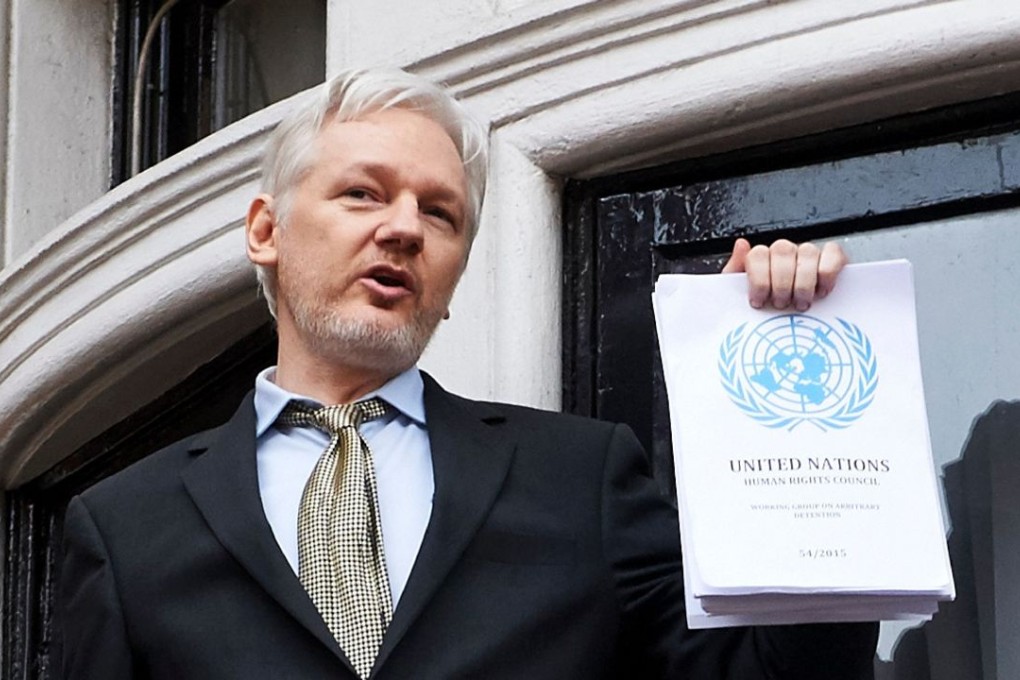Australia offers consular assistance to Julian Assange, who claims UN report is ‘victory of historical importance’
WikiLeaks founder has lived in the Ecuadorean embassy since June 2012 after he exhausted all chances of appeal through British courts against an extradition to Sweden to face sex crime accusations involving two women.

Australian Foreign Minister Julie Bishop has met with lawyers for WikiLeaks founder Julian Assange and offered consular assistance for the Australian, after a UN panel ruled he had been arbitrarily detained for almost four years.
Assange, a computer hacker who enraged the United States by publishing hundreds of thousands of secret US diplomatic cables, has been holed up in the Ecuadorian embassy in London since June 2012 to avoid a rape investigation in Sweden.
I have now read the report and I am seeking legal advice on its implications for Mr Assange, as an Australian citizen
The Australian citizen called on Britain and Sweden on Friday to let him freely leave the embassy, after the ruling in his favour by the UN Working Group on Arbitrary Detention.
“I met with members of the legal team for Julian Assange in London on Thursday afternoon, prior to the release of the report of the UN Working Group on Arbitrary Detention,” Bishop said on Saturday.
“I have now read the report and I am seeking legal advice on its implications for Mr Assange, as an Australian citizen. I have confirmed with his lawyers that our offer of consular assistance stands should he require it.”
Assange’s Australian lawyer, Jennifer Robinson, told the Sydney Morning Herald newspaper that the meeting with Bishop had been positive.
“We have requested they release his passport or immediately issue him a new passport and that Australia take positive steps to help to negotiate the resolution of this case,” she said.